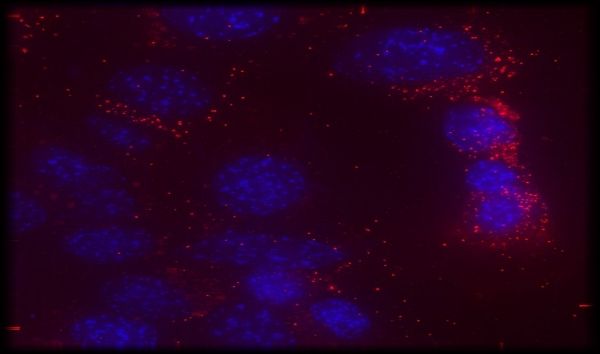Healthy cells in our body release nano-sized bubbles that transfer genetic material such as DNA and RNA to other cells. It’s your DNA that stores the important information necessary for RNA to produce proteins and make sure they act accordingly.
These bubbly extracellular vesicles could become mini treatment transporters, carrying a combination of therapeutic drugs and genes that target cancer cells and kill them, according to new research from Michigan State University and Stanford University.
The study, which focused on breast cancer cells in mice, is published in Molecular Cancer Therapeutics.
“What we’ve done is improve a therapeutic approach to delivering enzyme-producing genes that can convert certain drugs into toxic agents and target tumors,” said Masamitsu Kanada, lead author and an assistant professor of pharmacology and toxicology in MSU’s Institute for Quantitative Health Science and Engineering.
Read more at Michigan State University
Image: Bubbly extracellular vesicles (in red), carrying a combination of therapeutic drugs and genes, target breast cancer cells (in blue) in mice. (Credit: MSU)


